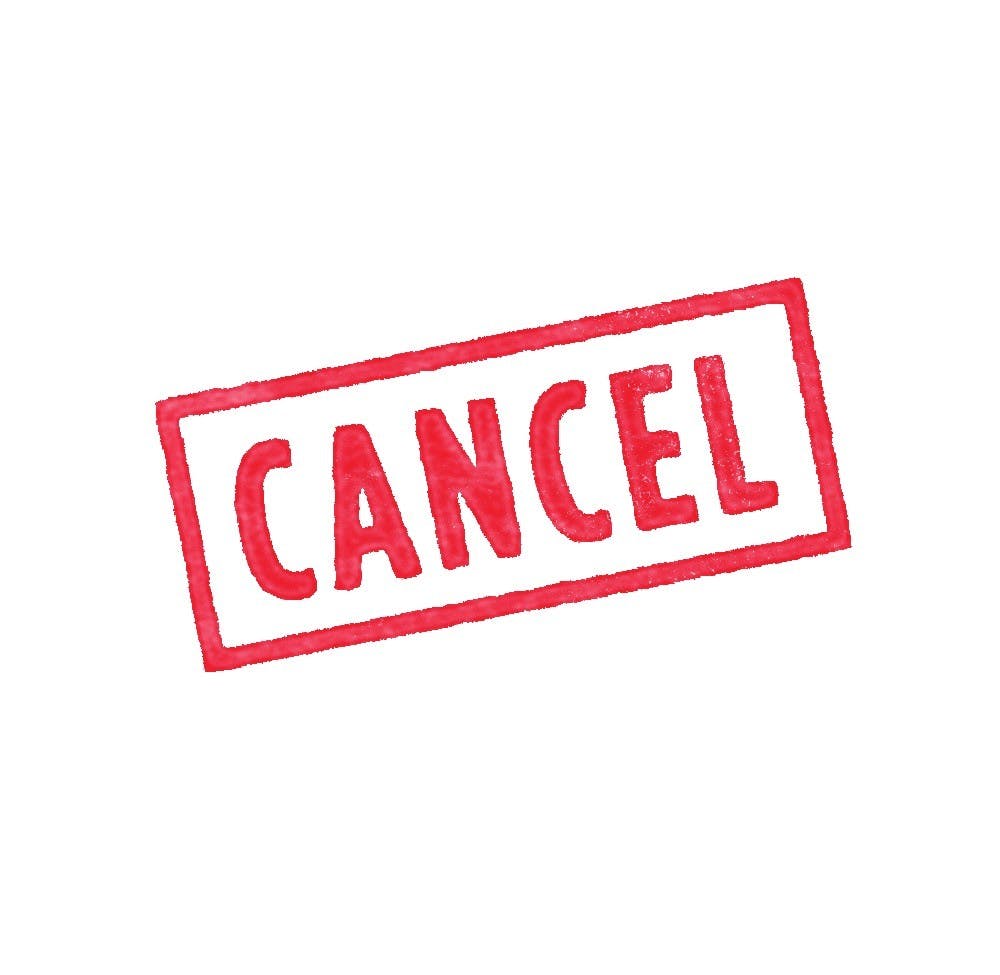Illustration by Olivia Griffin
What do you do when your heroes turn out to be terrible people?
When I was in high school and David Bowie died, I cried for hours, but when a girl in my class told me that back in the mid-70’s he ran rampant with underage groupies, the tears stopped. I coveted the Ryan Adams songs on the playlists that college boyfriends made for me, but when the allegations came out that not only did he emotionally manipulate upcoming female musicians, but engaged in elicit Twitter messages with an underage fan, I sold all of his records that I owned.
Cancel culture began with the rise of social media, where it was suddenly easy for anyone to call for immediate ethical change by “cancelling,” or calling out individuals who possess less-than-wholesome values. By refusing to buy products from corporations whose owners are racially insensitive or by choosing not to listen to the newest music from an artist who has objectified and abused others, cancelling isn’t just a way to right wrongdoings. It can promote a decent society where fame and power don’t constitute being able to do harmful things.
But where do we draw the line? A New York Times Article on the subject began with the sentence, “Almost everyone worth knowing has been cancelled by someone,” and nothing could be further from the truth. Seriously. Taylor Swift? Cancelled. Kanye West? Cancelled. Even everyone’s favorite avocado enthusiast from Queer Eye, Antoni Porowski? Cancelled over an Instagram story, where he was wearing Dolce and Gabbana.
Instead of giving space for apology and reflection, or giving someone a chance to truly atone for mistakes, most of these critiques end in a ruined career or a stained reputation. While still being able to do some good, cancel culture really just lacks empathy, which has been replaced by screenshots and calls to action. In the end, as Kimberly Foster of the female-led organization For Harriet points out, cancelling people can’t get rid of the harm that they’ve done.
I wish I could tell you what to do when your favorite artist commits an unspeakable act and becomes the newest subject of mass boycott. I wish I could tell you where to shop when it comes out that the founder of your favorite store wants Planned Parenthood defunded. But I can’t. It’s all personal, whether you choose to differentiate people from their wrongdoings or join the new custom of dismantling someone’s career.
Either way, I still listen to David Bowie.



